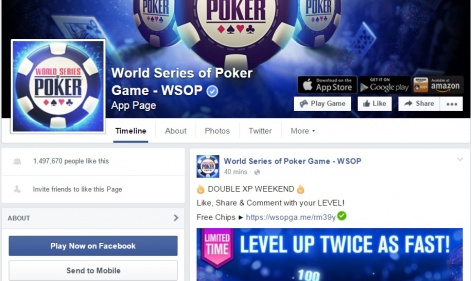At the Montreal Games Festival 2015, Playtika's user retention director, Alexander Galasso, announced “the casual gamer is dead.”
Looking at the games Galasso has worked on - notably Scrabble (while at EA) and now Playtika's The World Series of Poker - one may contest that he's spent his entire career catering to that which he now denies the existence of.
However, when we caught up with him post-speech, he argued that “the lines between the ways casual and hardcore players are defined today are blurred".
Indeed, those people playing Playtika's games are just as committed as those playing Blizzard's.
Not so different
“We see the same passion and intensity [as in Starcraft] when it comes to winning and losing at The World Series of Poker,” he explains.
“When we have limited-time events we see people play, on average, multiple hours per day.”
“And that's very contrary to the idea of casual players playing casually, like a few minutes here and there on the bus ride to work ... what we find as an industry now is that mobile players are actually playing at home.”

“Look at the new iPad Pro, for example - it's not very portable. For people who want immersive mobile experiences, such as Clash of Clans, they're going to be setting that up at home and playing on their couch, and not on PC or console.”
The definition of a 'casual gamer' is simply at odds with the reality of those engaging with mobile games today, Galasso argues, with successful free-to-play games requiring a much more engaged audience.
The definition of a 'casual gamer' is at odds with the reality of those engaging with mobile games today.
“Casual players are supposedly less competitive, yet with Hay Day we see a competitive clan mechanic laid over a farming game - it would be hard to be 'casual' and stay in that realm,” he reasons.
“Casual players don't engage in online communities apparently, but our fan page has 1.4 million likes - which is small compared to the likes of Candy Crush, which has 60 million likes.”
R.I.P products
He continues to argue that with games becoming services, with new content constantly being pushed out, is another contributing factor to the death of the concept of the "casual gamer".
Bar a few more one-off “art pieces” such as Gone Home, he says that every game today should be viewed as a service.
"In the next 5 years I think premium games won't exist, or at least be a very small part of the overall gaming market," he adds.
Not so casual threats
But, returning to his original point about casual/hardcore lines blurring, it's perhaps extreme reactions among the player base that most effectively crystallise his point.
“When Dong Nguyen removed Flappy Bird - what he thought was a very casual experience - he started receiving death threats,” Galasso recalls.
He adds that he has also received death threats or threats of violence in the past, while working on ostensibly casual mobile games.
“The only other developers that I know of receiving death threats on a regular basis are on games like Call of Duty or World of Warcraft, so for me that really blurs the lines.”
“Why would you send death threats to a developer if you didn't really care about the game and played less frequently?”






















